Anal Fistula Surgery
What Is Anal Fistula Removal Surgery and Why Is It Needed?
Anal fistula surgery, also called fistulotomy or fistulectomy, is a procedure used to treat a perianal fistula. Surgical procedures are generally required to treat this condition, as non-surgical treatments are typically ineffective in resolving the issue.
The exact type of fistula surgery you receive will be based on whether you have a simple or complex fistula. In either case, the goal is to heal the fistula while avoiding damage to the muscles that open and close the anus. Otherwise, there may be a risk of incontinence or loss of bowel control.
Read more about anal fistulas.
Fistulotomy
The fistulotomy is typically used for simple fistulas. It is done by cutting open the fistula to encourage it to
heal. It then heals as a flat scar.
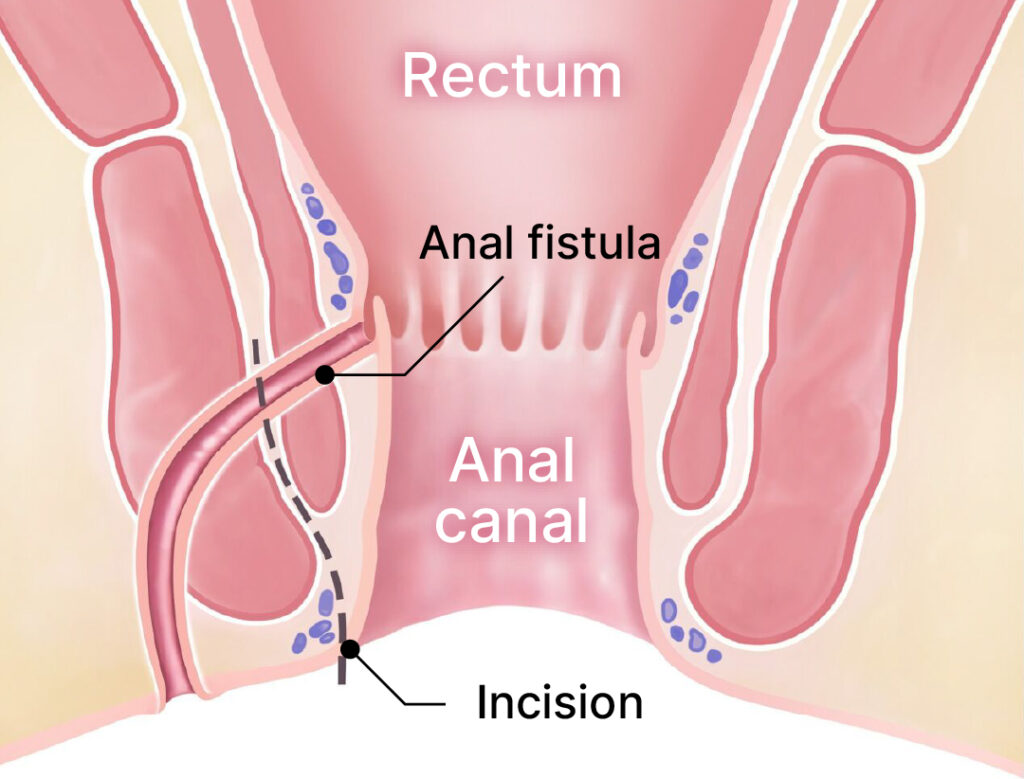
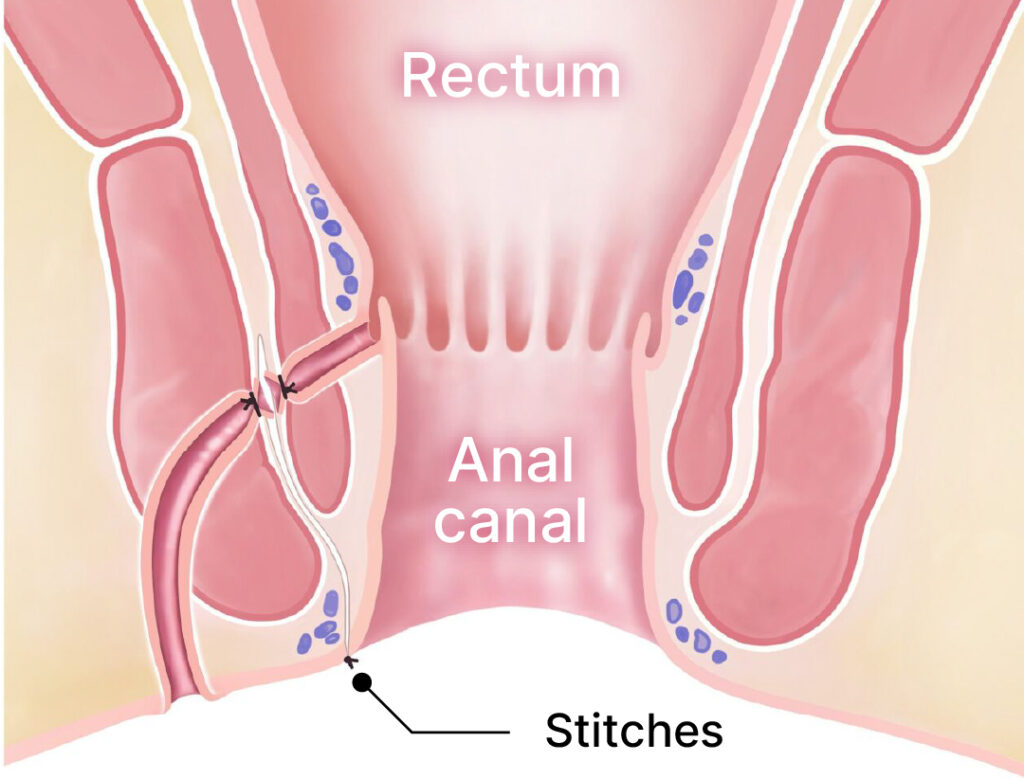
Seton Drain
Seton drains are often used for complex fistulas and require the passage of a surgical thread or tube through the fistula channel. The thread keeps it open and helps it drain properly, promoting healing.
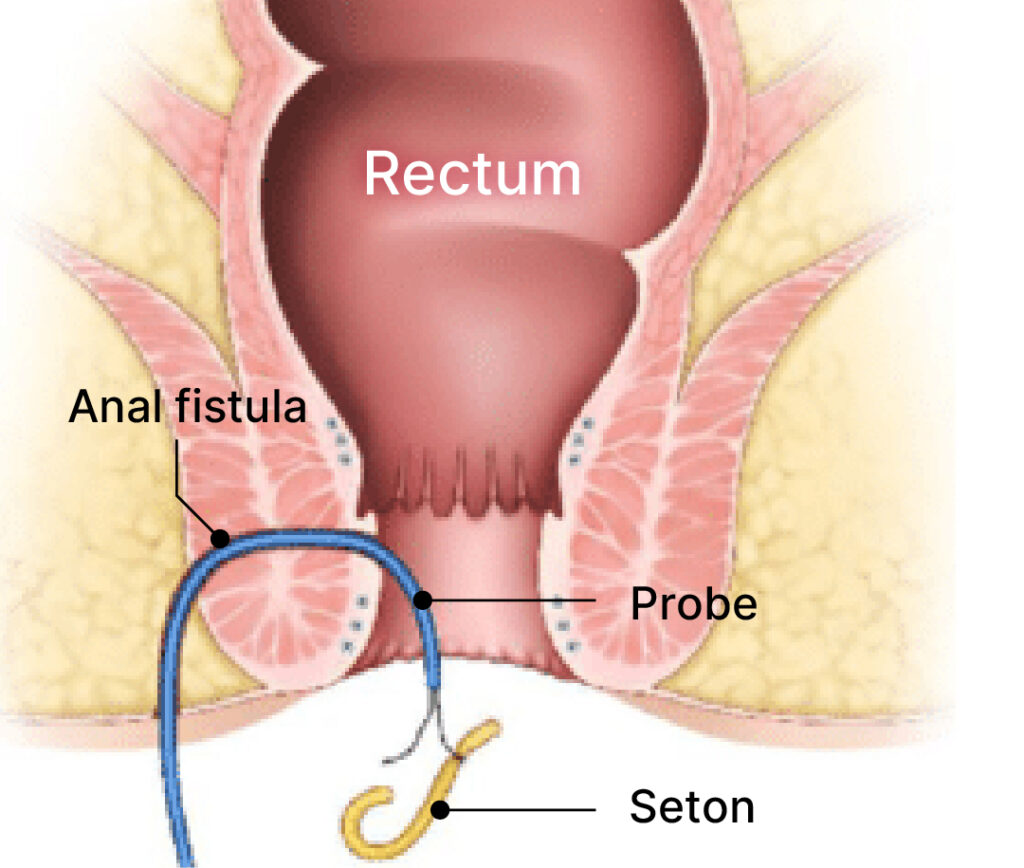
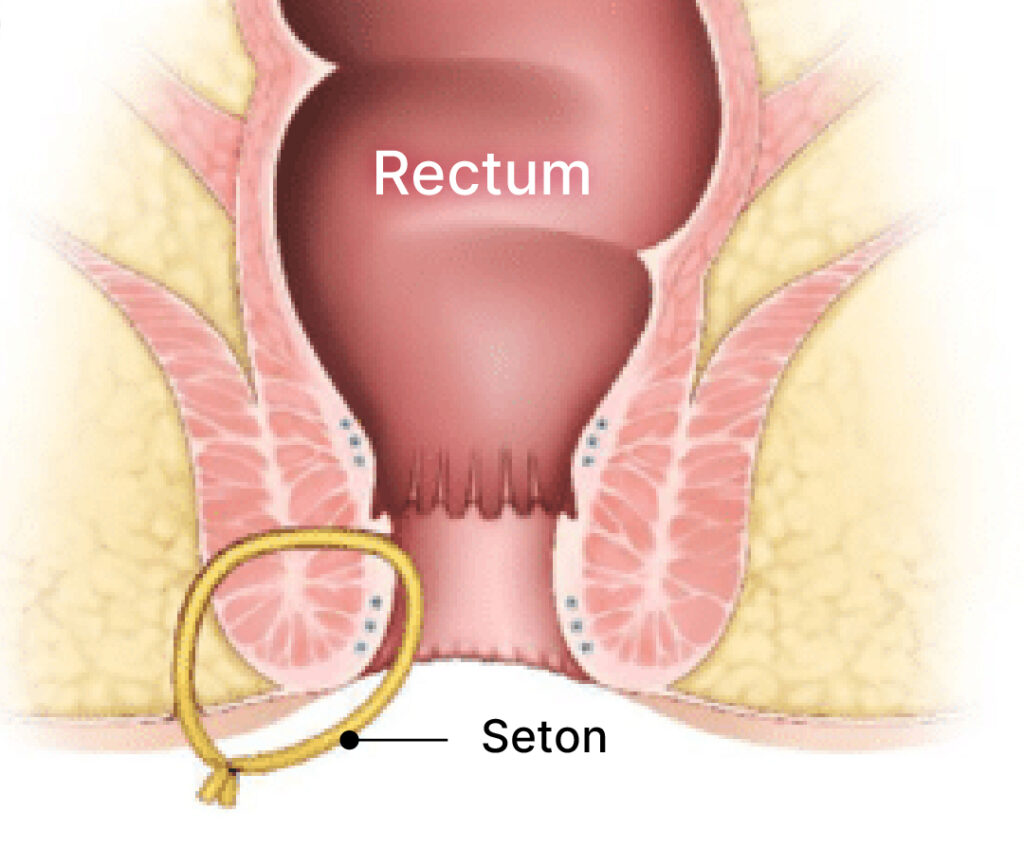
Endorectal Advancement Flap
Seton drains are often used for complex fistulas and require the passage of a surgical thread or tube through the fistula channel. The thread keeps it open and helps it drain properly, promoting healing.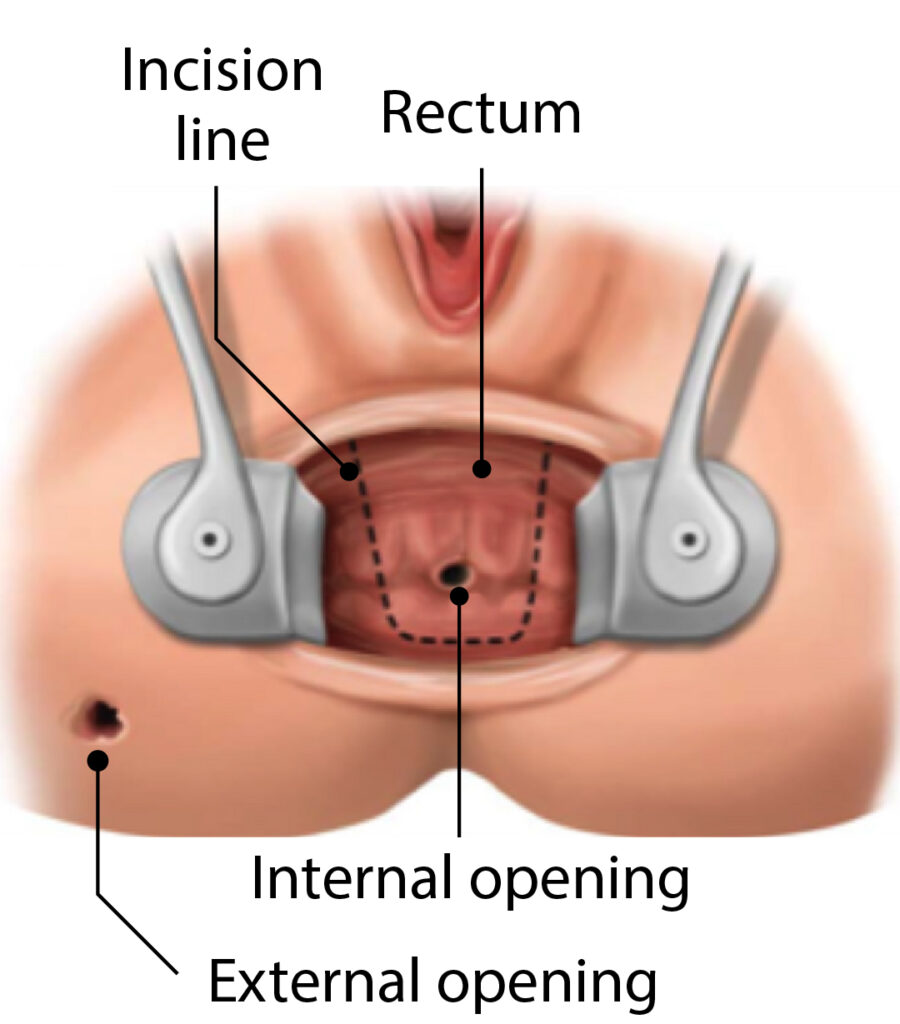
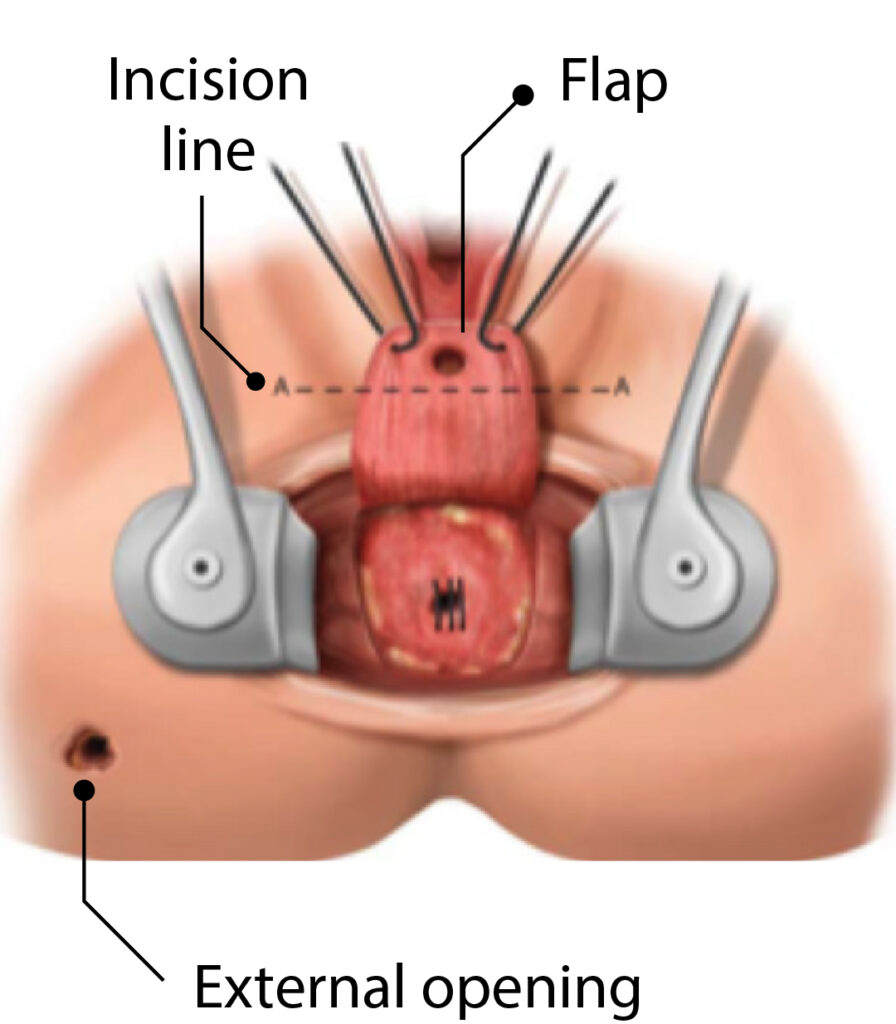
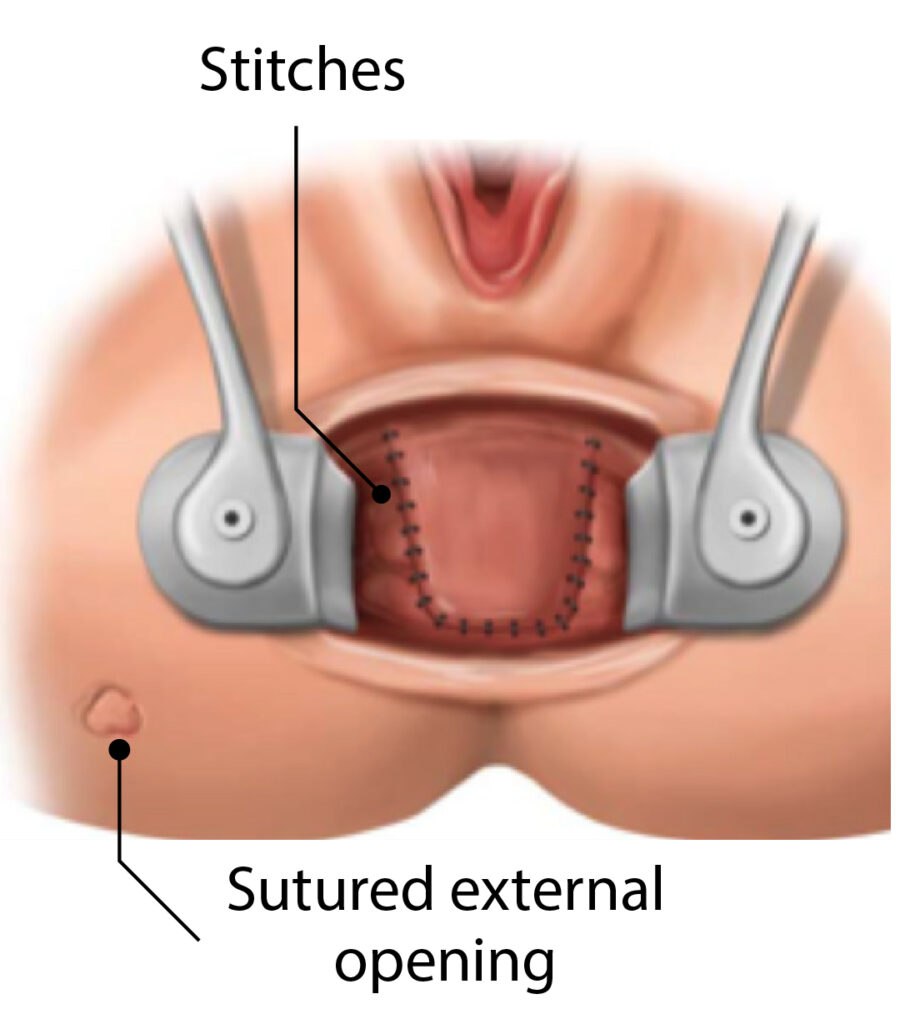
Source: Yellinek et al. (2019), Endorectal advancement flap for complex anal fistula: does flap configuration matter? https://doi.org/10.1111/codi.14564
LIFT Procedure Drain
LIFT stands for “ligation of intersphincteric fistula tract”. It involves ligation or tying off the fistula channel to try and preserve the muscles of the anal sphincter. This encourages healing while reducing the risk of incontinence.

Source: Kang et al., International Journal of Surgery (2018).https://doi.org/10.1016/j.ijsu.2018.10.043
When to Consider Anal Fistula Removal Surgery
A doctor will need to assess your condition to recommend the right treatment for your case. However, surgery is typically the most effective treatment for anal fistulas. Most non-surgical treatment options only address fistula complications and not the fistula itself, like antibiotics.
Your doctor will consider the severity of your symptoms, the likelihood of complications, and the quality of your life with the fistula when deciding what treatment to recommend. Early surgical intervention is generally preferred because fistulas do not generally resolve on their own.
See a Specialist on Anal Fistula Surgery
Book a consultation to explore your options for treating an anal fistula today.
What to Expect with Anal Fistula Surgery
Before the Surgery
Your pre-operation consultation will involve your doctor diagnosing your condition and explaining the recommended treatment. The procedure, goals, and risks will be explained, as well as pre-procedure rules you’ll need to follow before the surgery, such as fasting or medication.
At this stage, our colorectal specialist will go into detail on everything you may want to know about your condition and treatment. You can ask questions or raise concerns with us during this consultation, and we will do our best to address each one.
During the Surgery
Anal fistula surgery is typically a day surgery performed under general anaesthesia, so most patients will be asleep during the operation. The actual duration depends on the complexity of the case. Simpler ones take approximately 30 minutes, while more complex cases can take over an hour.
During this time:
- The surgeon identifies the fistula tract or channel.
- The tract is opened or excised to promote drainage and healing, sometimes with setons or a flap for closure.
- The area is dressed as necessary to finish the surgery.
After the Surgery
Most patients can go home the same day they get anal fistula removal. In some cases, a short hospital stay may be required first.
Your doctor will give you instructions for wound care and follow-ups to monitor recovery. The first 1 to 2 weeks should be dedicated to allowing the wound to recover. After that, most patients can return to work and regular daily routines.
Physical activity should still be kept light until the wound fully recovers. This may take several weeks to months, depending on its size.
If you experience any of these after the surgery, you should see your doctor immediately:
- Significant rectal bleeding
- Fever
- Dizziness or vomiting
- Severe abdominal pain
- Abdominal swelling or pressure
Recovery and Prognosis for Anal Fistula Surgery
As this procedure is typically done on an outpatient basis, you can typically head home the same day to rest and recover. If you underwent general anaesthesia, it’s advisable not to drive and to have someone accompany you for safety reasons.
These are some common aftercare steps you may be advised to follow:
- Take a course of antibiotics after surgery or pain meds if needed.
- Take warm sitz baths to keep the area clean after a bowel movement.
- Take prebiotics or fibre supplements with ample water to keep your stools soft.
The actual prognosis will depend on how simple or complex your case is. Some fistulas may return after surgery, especially if they are multibranched or caused by chronic diseases.
Risks and Side Effects of Anal Fistula Removal
While anal fistula surgery generally proceeds smoothly, there are certain risks for it as with all other procedures:
- Infection, which may be countered by antibiotics
- Recurrence of the fistula following surgery
- In rare cases, bowel incontinence
Surgery Fees and Insurance Coverage
For a detailed fee breakdown or to check your eligibility for insurance or Medisave claims, please get in touch with us.
Discuss Your Treatment Options with a Colorectal Specialist
If you’ve been diagnosed with an anal fistula or are experiencing ongoing discomfort in the buttock region, speak with our specialist to find out steps to take next. Learn if anal fistula surgery is the right option for you.
